Singapore election: podcasts, memes, ‘chiobu’ – a look back at hustings colour
On top of bread-and-butter debates over an intense nine days of political campaigning, here’s a recap of other side issues
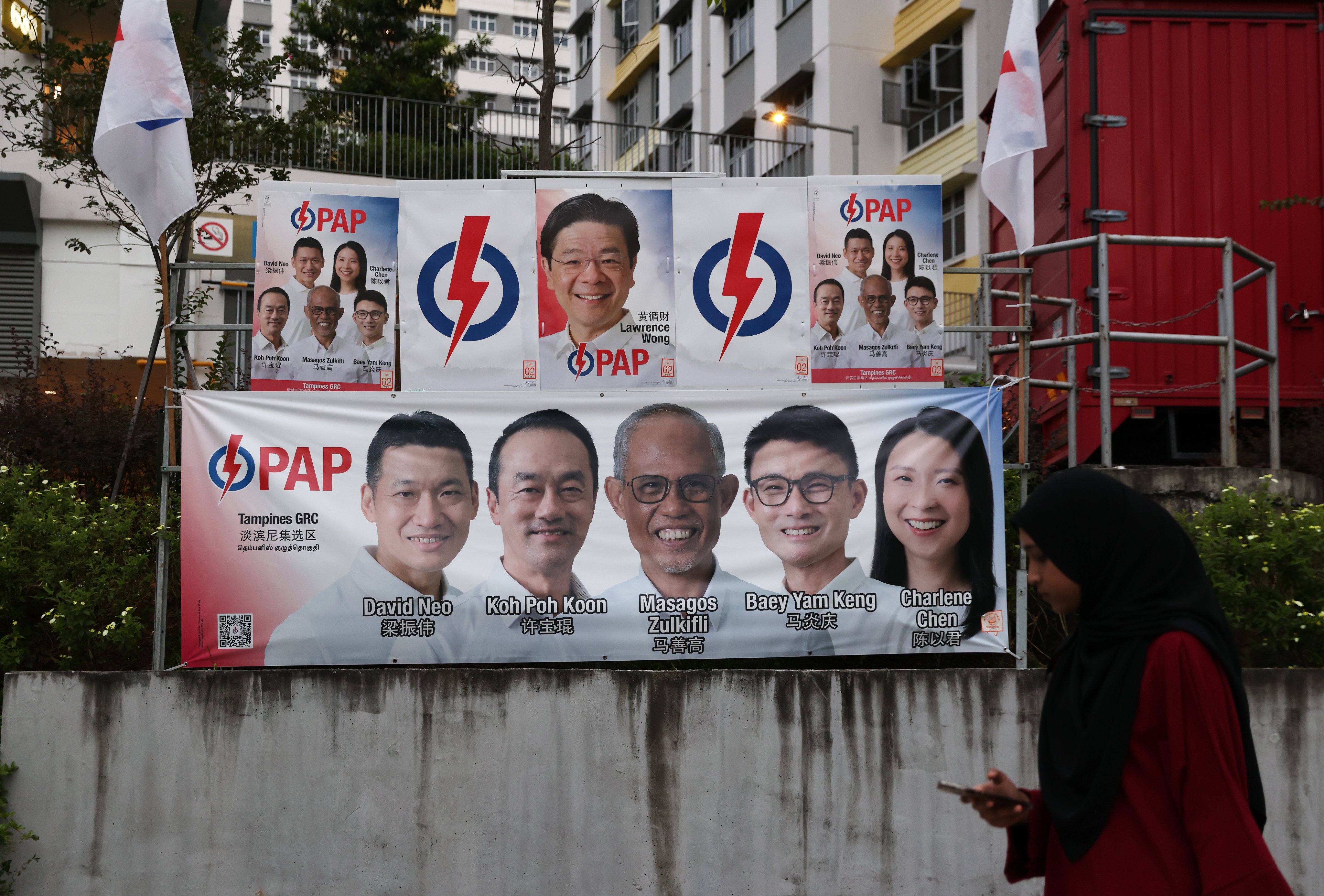
Singapore voters on Saturday headed to the polls after taking in the calm of cooling-off day following a frenetic nine days of election campaigning.
While hot-button issues such as cost of living and plurality in parliament versus the security of a PAP-led government form the main themes, the electorate cast their ballots with rally catchphrases ringing in their ears and political memes dancing on their minds.
Here’s what voters may have been thinking of as they stamped their political choices on the ballot paper:
Pod boom
Voters were spoiled for choice when it came to catching their would-be MPs on podcasts in this election. While the last election in 2020 saw the early stages of the medium gaining prominence during the country’s first online campaign amid Covid-19 restrictions, cabinet ministers and prominent opposition figures alike chose platforms like Yah Lah BUT, The Daily Ketchup and Political Prude in this election to convey their messages.
In an episode of Yah Lah BUT on Thursday, hosts Terence Chia and Haresh Tilani criticised the new format of national broadcaster CNA’s round table with candidates. Unlike the format in 2020, where candidates asked each other questions, this year’s round table on April 28 featured candidates answering questions posed by the host or an expert.
“Podcasts seem to be the only platforms that are trying to advocate for more conversation in this election, and that’s where I hope that we, you know, we are part of the process of training people to want more conversation, want more authenticness, authentic conversations with their leaders,” Chia said.
Echoing his sentiments, Tracy Loh, a senior lecturer in communications at the Singapore Management University, said the more “relaxed” format provided viewers a different perspective of politicians.
“It allows politicians’ personalities to shine through especially if there are off-the-cuff moments during the podcast. Hence politicians can come across as more authentic and transparent,” she said.
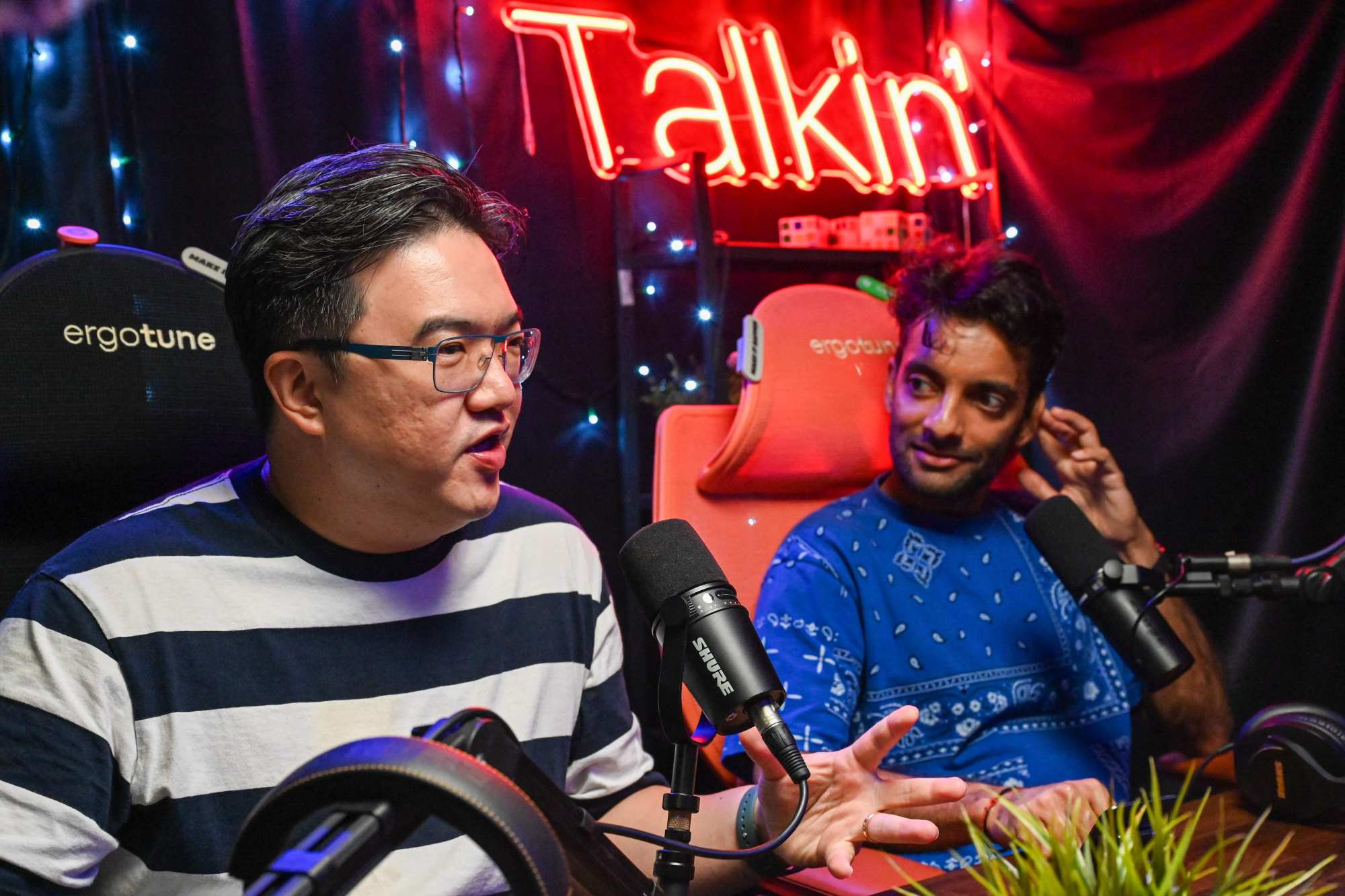
No fake news?
Unlike in the 2020 general election campaign period when 16 directions were issued under Singapore’s fake news law, no orders were made over the nine-day period in this election.
Under Singapore’s Protection from Online Falsehoods and Manipulation Act (Pofma), ministers can issue directions to individuals to put up correction notices online if there was a bona fide falsehood, classified as a statement of fact that was false or misleading; and if the use of the law was in the “public interest”.
In 2020, orders were issued by alternate authorities for various ministers against the Facebook pages of political parties, Facebook users and news websites, including national broadcaster CNA, among other entities.
The orders were related to hot-button issues including Singapore’s response to Covid-19 infections among foreign workers living in dormitories, the population projection and government spending on foreign students.
This may be due to Covid-related restrictions during the 2020 general election, which forced most election activities to be limited to the online sphere and greater scrutiny of online activities, said Chong Ja Ian, a political scientist from the National University of Singapore.
“That said, this election also had many reports of inauthentic online behaviour, but there was no issuance of Pofma directives,” he said, referencing media reports on inauthentic social media accounts posting comments about the political parties in the contest.

Women in politics
At a Workers’ Party (WP) rally on April 26, before candidate Alexis Dang, who was hosting the rally, had spoken a word, shouts of chio bu (Hokkien for attractive woman) could be heard by male voices in the audience.
The fixation with Dang’s appearance, prompted a response from women’s rights group Aware (Association of Women for Action and Research).
“When women in politics are reduced to what they look like, their clothes, or their roles at home, it sends a loud message: that their leadership potential doesn’t matter. That their ideas are secondary to how they present,” it said.
Responding to a question on Thursday on the attention and comments she had been getting, Dang said that while it was natural for the public to view female candidates in a certain way, it was important to not let such perceptions limit who she was and how she conveyed her message.
“All of us here are multifaceted individuals, so I don’t think one image truly defines us, and I think we are looking forward to sharing this different side of us, with the Punggol residents as well as the broader community in Singapore,” Dang said.
Her running mate, Harpreet Singh, said that such comments were unacceptable and must stop. “We must respect women. They’re absolutely, absolutely bright. We must, first and foremost, see them as individuals.”
PAP fielded a record 32 women in this election where 97 parliamentary seats were on the line, after Prime Minister Lawrence Wong had earlier emphasised a need for more women in parliament. Meanwhile, six of the 26 WP candidates are women.
There are 53 women candidates in total, up from 40 in the last general election.
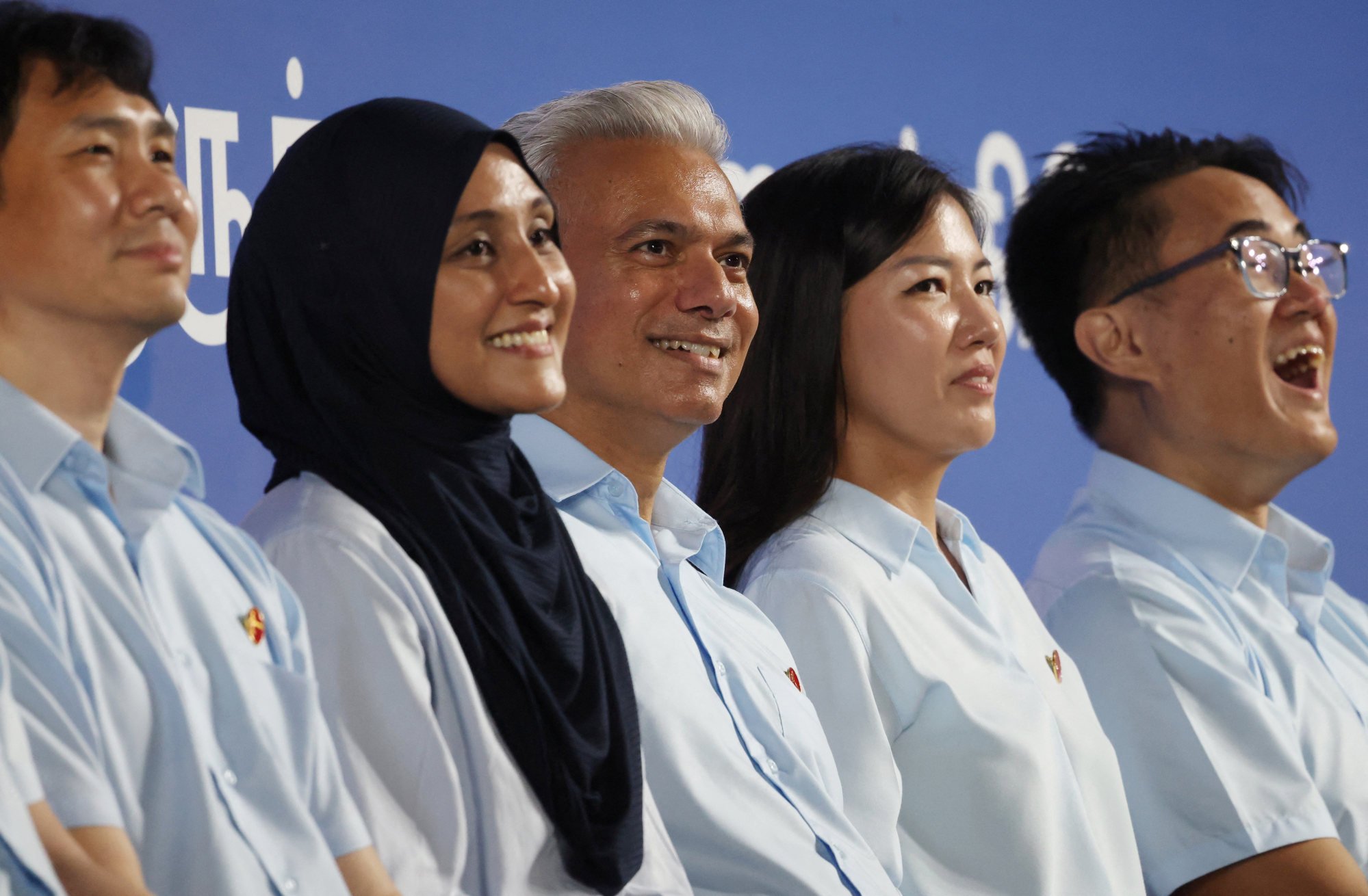
Election humour
This election cycle saw candidates flaunting their musical chops and quirky talents during the lead up to the vote.
From the WP’s Andre Low’s beatboxing to the PSP’s Sumarleki Amjah performing silat – a Malay traditional martial art – these performances by new faces captivated the digital savvy Gen Z audience, judging by the engagement online.
But not all attention has been flattering, with some candidates becoming the subject of memes and jokes online. One candidate, Samuel Lee, from the small opposition party, People’s Power Party, shot to internet fame after he sang an original tune about looking left and right for a career path.
Social media users have given his off-tune song a new spin, remixing it with catchy pop tunes and turning it into dance tracks.
Meanwhile, his party leader, Goh Meng Seng, also gained social media notoriety after a clip of him declaring his sexual orientation went viral.
“Don’t ask me about Pritam Singh again. I’m not interested in him. I’m not gay,” he said at a rally, referring to the WP’s decision not to contest in Marine Parade-Braddell Heights GRC. No other political party contested in that GRC, resulting in a walkover.
In a separate rally address, Goh sought to “formally” introduce himself, following what he saw as a “smear campaign” made against him online.
“I’m a straightforward guy. I’m straight, I’m straight, remember I’m straight,” he declared.
Multiple clips of his introduction have been widely shared on social media platforms like TikTok, with one garnering over 15,600 views and 7,300 shares in two days.
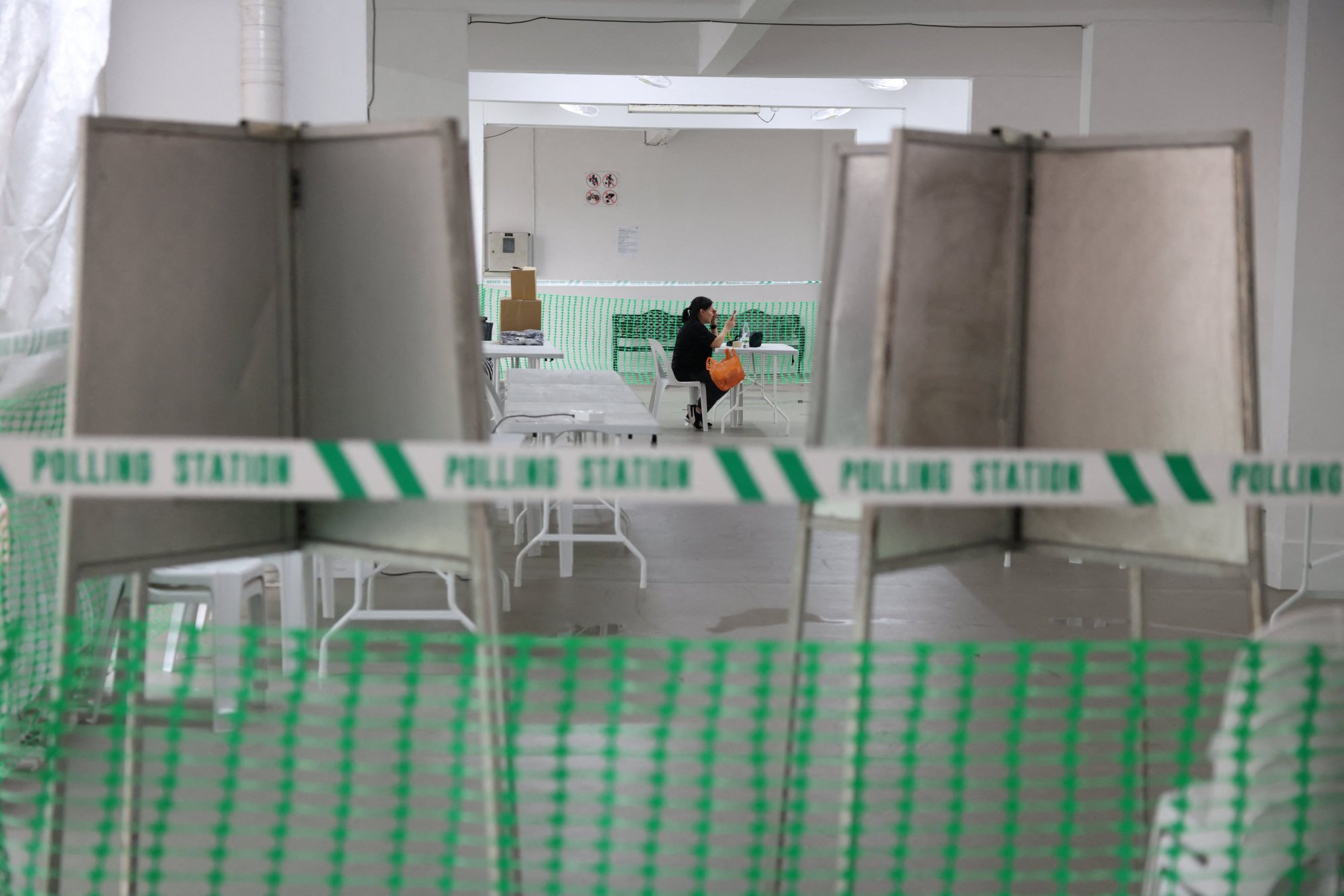
Mixing football with politics
Metaphors – from soccer teams to boats – became a handy short cut for candidates seeking to simplify complex issues and sway voters.
Wong drew on the analogy of a football team to warn against losing experienced ministers, like Deputy Prime Minister Gan Kim Yong.
“The coach can say I have backups, I have reserves, sure, but everyone knows that the team cannot function at the same level,” he warned in his May Day Rally address on Thursday morning.
During his speech, he also gave a special mention to Gan, who was appointed chair of the Economic Resilience Taskforce a day after the election date was announced last month.
In response, WP chief Pritam Singh told reporters: “No football team enters the pitch with 11 players. The substitutes are a critical part of any team.”
He went on to explain that the soccer teams have to change formations, which may require calling in substitutes from the bench. “So this idea that you’re only playing with 11 players frankly is not a very good football analogy.”
Health Minister Ong Ye Kung also revisited a co-driver analogy that was brought up in the 2011 election and said that if the opposition wins another three or four constituencies, it would likely want to become more than a co-driver to the ruling PAP and will “have one hand on the steering wheel and say, ‘I also want to drive’”.
“It can become dangerous. We may be at risk of crashing. And if we crash, the co-driver will say, ‘It is not my fault, I am not the main driver’. I fear that this is where we are heading to,” Ong said.
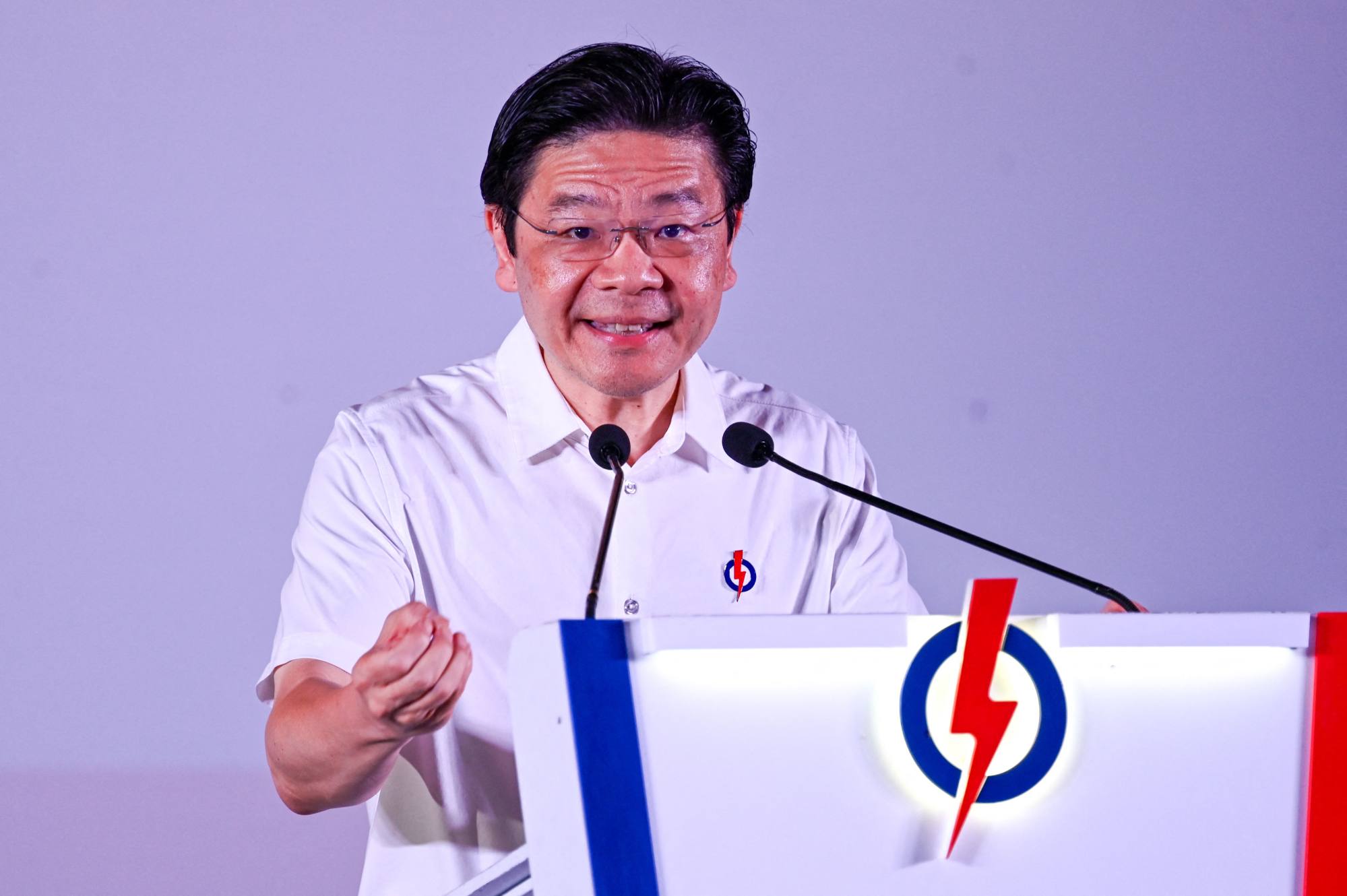
Past saga revived
The election unfolded following a term dogged by multiple controversies – from high-profile resignations over extramarital affairs and the prosecution of former transport minister S Iswaran and the WP’s handling of a member who lied to parliament – none of these made headlines. Attention instead centred on an aborted corporate deal, as the opposition put a laser focus on the subject.
Ng Chee Meng, who is chief of Singapore’s labour union NTUC, and his involvement in the deal became the subject of scrutiny during the campaign period, amid his neck-and-neck race against WP newcomer Andre Low.
Last October, the government blocked German insurer Allianz’s proposed S$2.2 billion (US$1.7 billion) acquisition of a majority stake in Income, following public concerns over the co-operative’s ability to uphold its social mission.
Political observers who previously spoke to This Week in Asia said the blocked deal had re-emerged as Ng’s biggest challenge.
On why the issue might have garnered more attention than the other sagas, Chong said: “It seems to be an alleged issue of oversight that not only affects many people’s lives, it brings into question the supposed social mission of NTUC, and seems to be due to multiple agencies taking their eye off the ball, including the Monetary Authority of Singapore.”
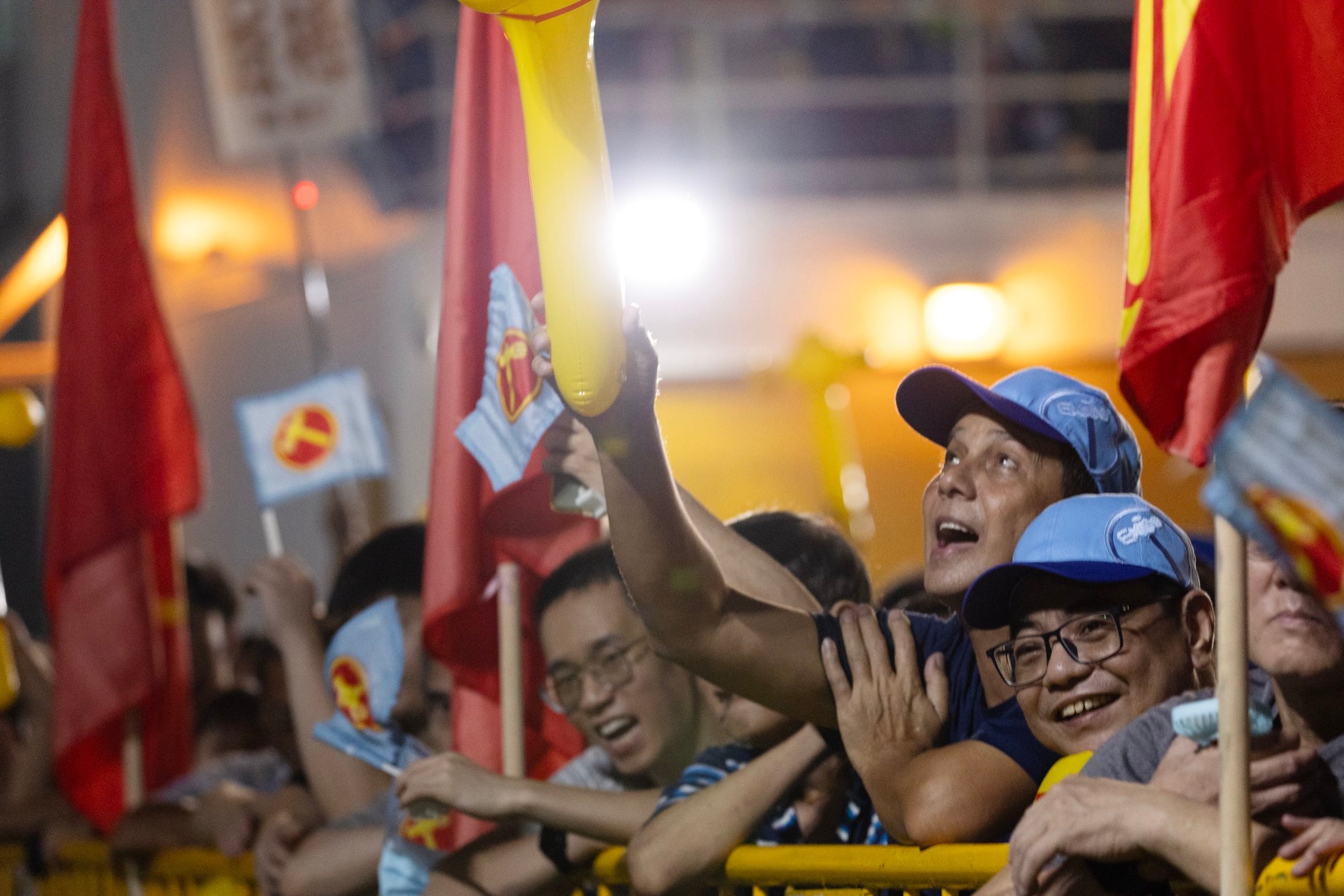
History is passé?
During the September general election of 2015, which was also Singapore’s 50th year of independence, SG50 celebrations – as they were called – featured in many campaign speeches as candidates revelled in the festive mood from a month earlier. This time around though, with the election taking place months ahead of the SG60 anniversary, the theme was mentioned mostly in passing.
Chong argued it could be in line with the PAP seeking a mandate for its new leadership.
“It could well be that the PAP is trying to position itself as more forward looking, given that it just had its leadership transition and probably wishes that the public sees Lawrence Wong as ushering in a new era,” Chong said.
He added that 2015 was also significant because of the death of Singapore’s founding father Lee Kuan Yew that year and combined with the SG50 celebrations made the juxtaposition more poignant and tugged at heart strings.
Ironically, the city state’s founding prime minister Lee was invoked more often this election by the opposition parties, including by WP’s Singh on Thursday night in a rebuttal to Wong saying he could not afford to lose more cabinet ministers after four had already stepped down.
Singh pointed out that Lee was able to put together a strong cabinet with fewer MPs to choose from since the number of MP seats has grown to 97.
“Before 1980 there were fewer than 70 PAP MPs in parliament, yet the PAP had more than enough people from which to find outstanding 1G (first generation) ministers. Mr Lee Kuan Yew had far fewer people to choose from than PM Lawrence Wong has,” Singh said.
However, Wong sought to dispel comparisons made between him and the republic’s founding father.
“I heard one of the opposition parties say: Lawrence Wong is nowhere like Lee Kuan Yew. So different, standards have dropped. And I kind of laughed, because who in Singapore is like Lee Kuan Yew?” he said at a rally on May 1.
Chong argued that many of these first-generation PAP leaders had become “symbols in Singapore politics”. While the PAP will claim their legacy and association with rapid economic growth in Singapore, opposition parties will argue that the current PAP has deviated from the PAP of old, Chong said.